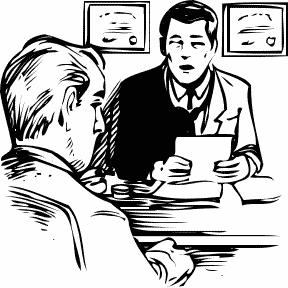Saturday, May 24: Mississippi Mud
The following piece is a shortened version of an article I sold in 2003 on researching short mystery stories. It’s of course geared to writers, but I’m hoping it might be interesting to readers as well.
FACTS IN FICTION
by John M. Floyd
The most important thing I can say about research is this: you don’t always have to “write what you know.”
You should write what you like to read, and what you feel comfortable writing. Simple as that. It may or may not be what you know. I’ve written and sold lots of stories about murder and deceit, but I’ve never killed anybody or robbed a bank or even cheated on my taxes. (Besides, if authors wrote only what they knew, there’d be no such thing as science fiction.)
As a mystery writer, you’re free to make things up. That’s what fiction means. You don’t have to be an expert, and the subject of your story doesn’t have to be your job, or sport, or hobby. BUT (you knew there would have to be a “but,” right?) you must be believable, and you must get your facts right. You don’t want to have your historical-mystery hero use a device that hasn’t been invented yet, or have your detective shoot a revolver equipped with a silencer (they only work on automatics), or have your heroine comment on the lovely gold color of the Golden Gate Bridge (it’s actually red).
Sources of information
How do you go about finding and checking these details, and making your story ring true? I can think of only three ways:
(1) ask someone who knows,
(2) look it up, or
(3) go see for yourself.
 As for the first option, all of us probably have friends or relatives who work in banking, insurance, medicine, law enforcement, etc. Ask them what you need to know. And if you don’t already have an inside contact, make one. Authorities on almost any subject can be found in the phone book, and are usually willing and even eager answer a writer’s questions.
As for the first option, all of us probably have friends or relatives who work in banking, insurance, medicine, law enforcement, etc. Ask them what you need to know. And if you don’t already have an inside contact, make one. Authorities on almost any subject can be found in the phone book, and are usually willing and even eager answer a writer’s questions.
If you’re too shy to approach an expert, or if you don’t need that kind of in-depth knowledge, there are always reference books, and the Internet. Enough said.
 The third way of getting information refers to a location: if it’s not too far away, just go there yourself. For a recent story set in nearby Jackson, Mississippi, I spent an afternoon strolling the downtown area with a pen and pad, going everywhere my fictional hero would go. I jotted notes about landmarks, street names, aromas, noises, etc. Readers enjoy finding familiar places in a story, and firsthand sensory info makes any setting seem more real.
The third way of getting information refers to a location: if it’s not too far away, just go there yourself. For a recent story set in nearby Jackson, Mississippi, I spent an afternoon strolling the downtown area with a pen and pad, going everywhere my fictional hero would go. I jotted notes about landmarks, street names, aromas, noises, etc. Readers enjoy finding familiar places in a story, and firsthand sensory info makes any setting seem more real.
Advantages
What’s the payoff for all this investigative work? It makes your short story more believable. And if it’s believable, your reader will be more likely to stay with it to the finish, and to look for other stories with your byline in the future.
Accuracy can also protect you from embarrassment. In his book Writing the Short Story, Jack M. Bickham says: “If you publish a story in a mass-market publication, and make a factual mistake of any kind, you can be sure an astounding number of readers will spot the error. Worse, some of them are sure to write your publisher, complaining.”
But . . . too many facts and details, no matter how authentic, can sink your story as quickly as too few.
Overdoing it
When does enough become too much? The truth is, there’s no danger to doing too much research. The problem arises only if you try to include it all.
Short stories, especially mysteries, are tightly written. Every sentence must either help develop a character or move the plot forward. Information obtained through research is usually descriptive, which is great — if you don’t get carried away when the writing starts. Trying to pack too much of all this accumulated knowledge into your story can overwhelm and even bore the reader.
So provide only enough detail to establish a degree of authenticity. Don’t let research be your way of bragging about the sights you’ve seen or the books you’ve read, or your mastery of a particular field. Present only enough facts to keep the reader involved in the mystery.
How do you do that? Here’s a rule of thumb: include only the things that you found most interesting — fascinating, even — when you were gathering the information. Those things will probably interest the reader as well. Leave out anything preachy or overly technical, and certainly anything that might send your reader to the dictionary. In short, leave out anything that might get in the way of your story.
Hints and tips
Since you’re writing (and researching) mystery stories, here are a few specifics:
- Instead of spending hours studying specific investigative and crime-scene procedures, set your mystery in a fictional city. Funny thing about fictional cities — they have fictional police departments, and your imaginary PD can (within reason) have its own sets of procedures. Or cheat even further, and don’t mention the city’s name.
- According to mystery writer Stuart A. Kaminsky, “If you can’t find the answer to your question, create an answer that makes sense and attribute it to a character. It becomes his or her information, not yours.” And characters, being human, can be wrong.
- After you finish a story but before you submit it to an editor, Google your characters’ names. If you find that your psychopathic villain shares his name with a real person, consider calling him something else, especially if they live in the same area. (It’s surprising how often, during the creation process, the subconscious can supply a name you’ve heard somewhere before, even though you think you made it up.)
- When you do have to use technical or medical or unfamiliar terms, be sure to spell everything right. You don’t want to say the murder weapon was a Baretta when it was really a Beretta. One’s a gun, the other’s an old TV series.
- Stock your personal library with good reference books. A few favorites: (What’s What by David Fisher and Reginald Bragonier Jr., What Happened When by Gorton Carruth, and the Writer’s Digest “Howdunit” series (Deadly Doses, Amateur Detectives, Scene of the Crime, etc.). A gazetteer is also useful, and I often consult the section in my world atlas that lists county and city names by state, so my fictional towns don’t turn out to be real towns.
- Don’t forget other, unusual sources of research info: travel brochures, firearm manuals, government websites, medical journals, guidebooks, almanacs, regional histories, etc. Facts, like ideas, are everywhere.
And remember, research can be fun. You’re not doing a term paper here, you’re writing a short story. It’s the only time in my life that I’ve enjoyed studying.
Just don’t get so hung up on research that it strangles your creativity. Your main concern, as a mystery writer, should be to provide suspense and entertainment.
Lawrence Block, who writes great mystery short stories, once said fiction is nothing but a pack of lies anyway. On the subject of small police-procedural details, he says (in Spider, Spin Me a Web): “Ninety-eight percent of your readers won’t know whether the information is accurate or not, and the rest won’t care.”
I couldn’t have said it better myself.





















Creating a fictional town is exactly what I did. I researched the typical procedures for the a town that size, some state requirements as I did name the state.
Besides spellings, one thing to check is time. For a story set in the 1950s, there wouldn’t be an Miranda warning, for example.
I agree. As for creating fictional towns, John Grisham did that in most of his Mississippi novels, from his first (A Time to Kill) to his latest (The Appeal). He even set those towns in fictional counties. Some mystery novelists have done the same (Ed McBain’s Isola, for instance), though Robert B. Parker’s Boston is really Boston, right down to the street names.
Raymond Chandler would mix them up. Marlowe’s office was on the corner of Cahuenga and Hollywood Boulevards, an actual intersection, but many of his adventures outside of Los Angeles took place in fictional or thinly disguised fictional towns. Most famously, Santa Monica was portrayed as “Bay City”.
You’re right, JLW. And even though Parker set his Spenser series in a real town, he set his Jesse Stone novels in fictional Paradise, MA. Whatever works, I suppose.